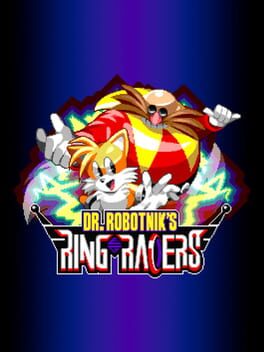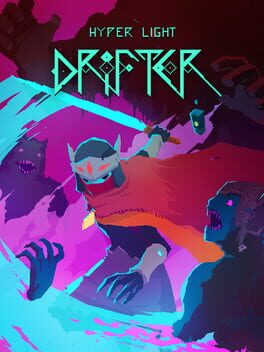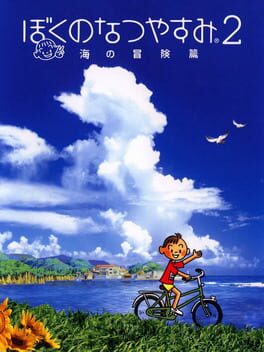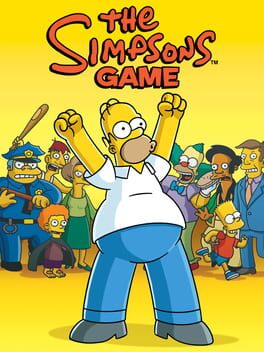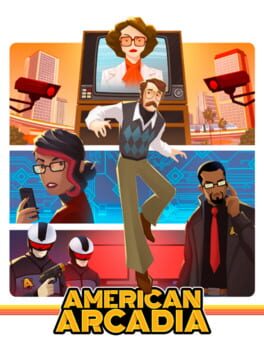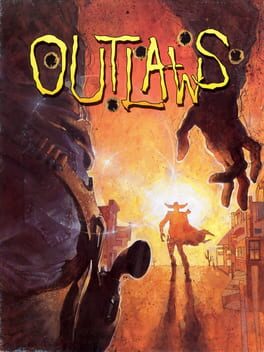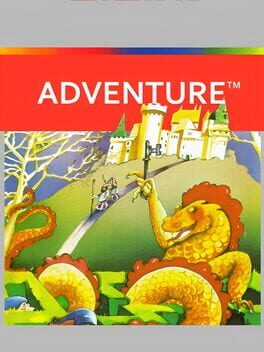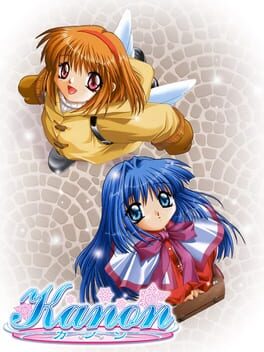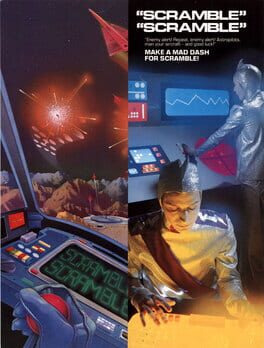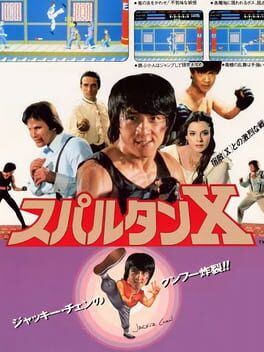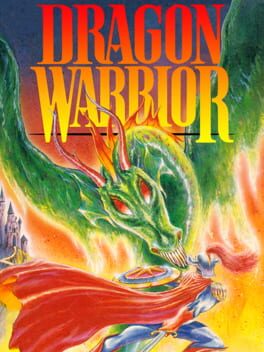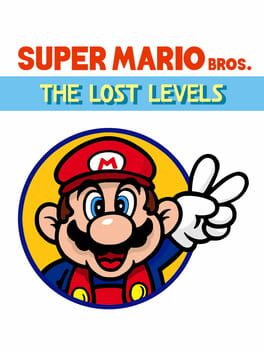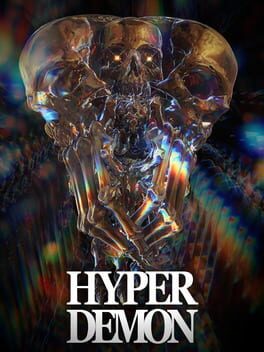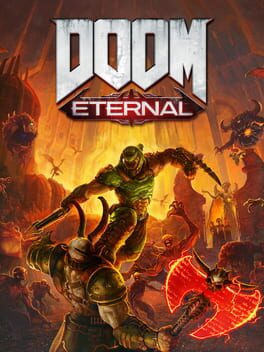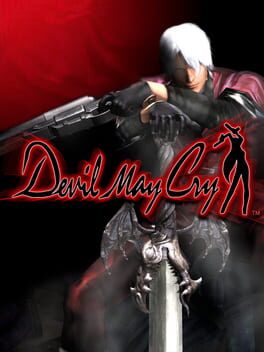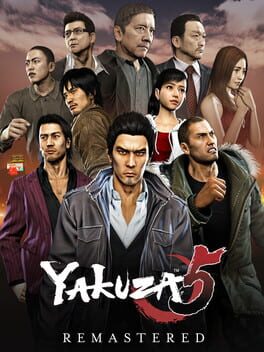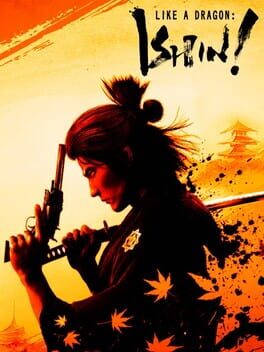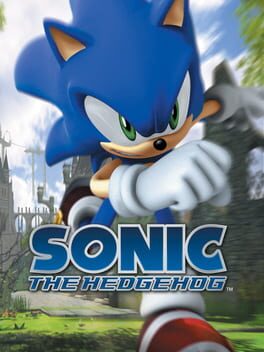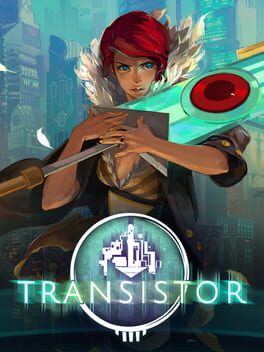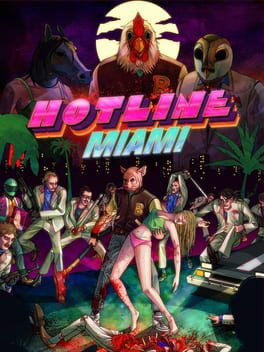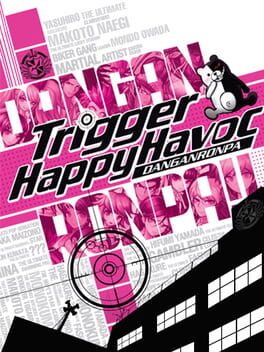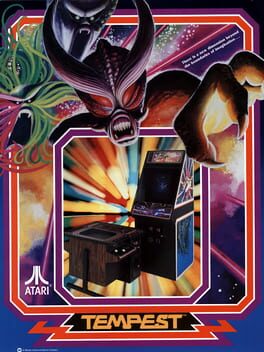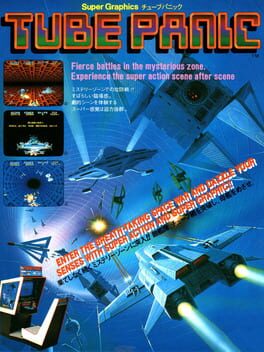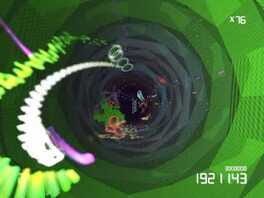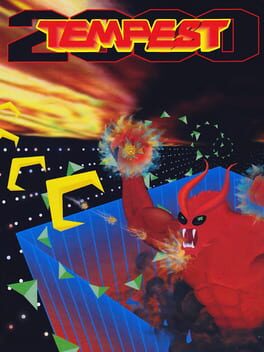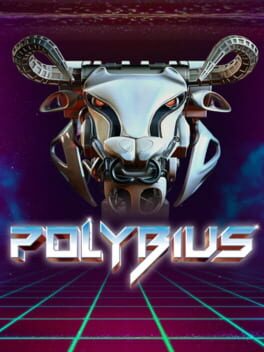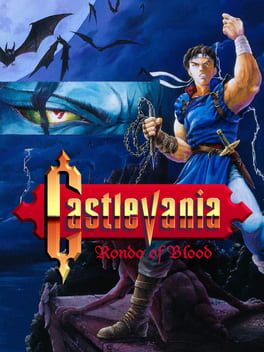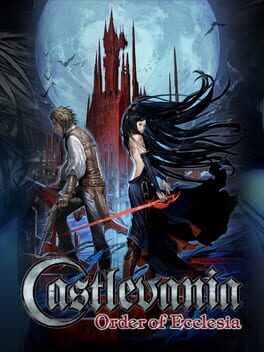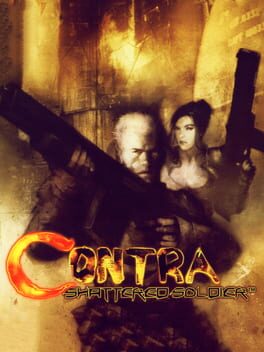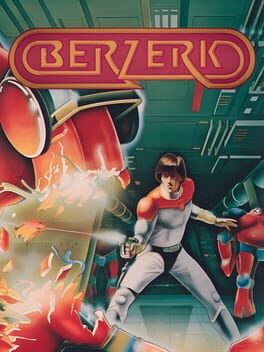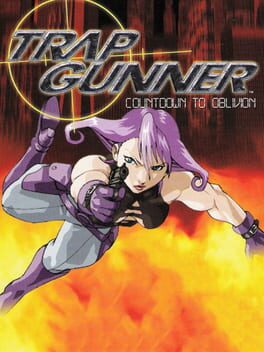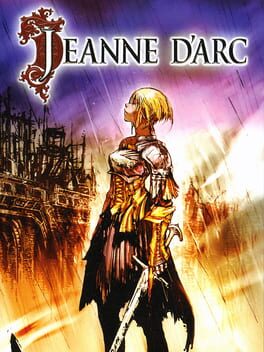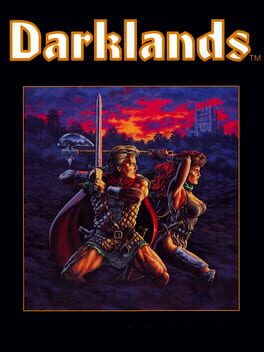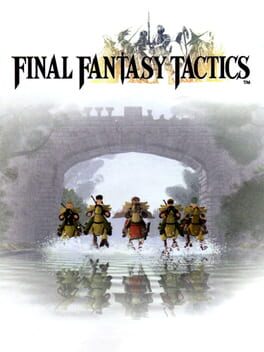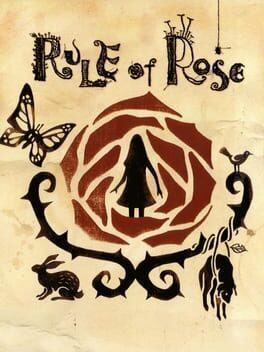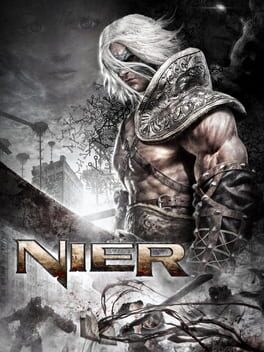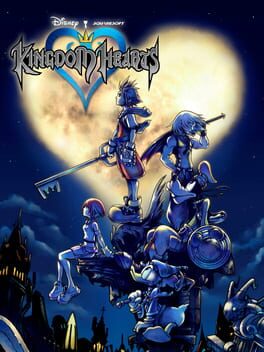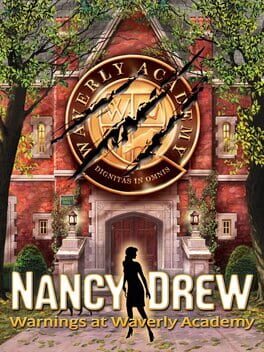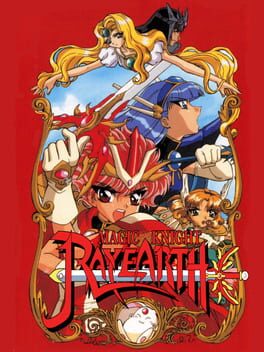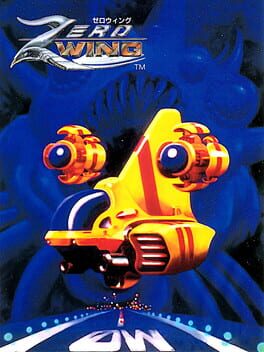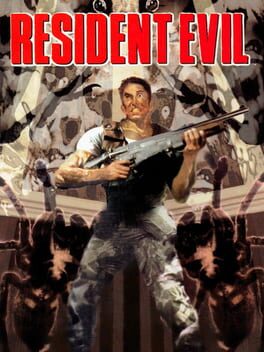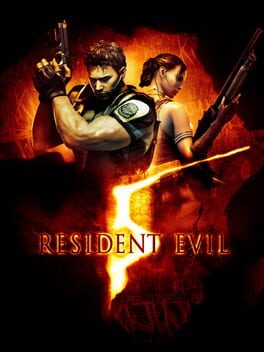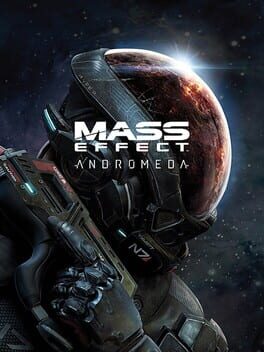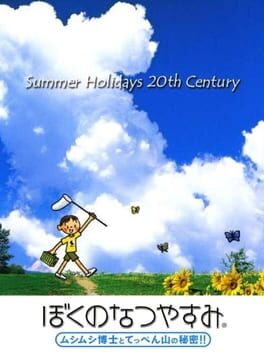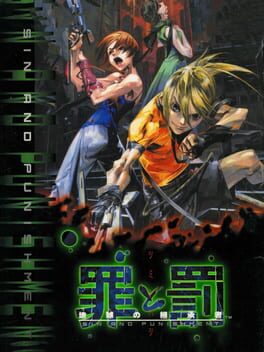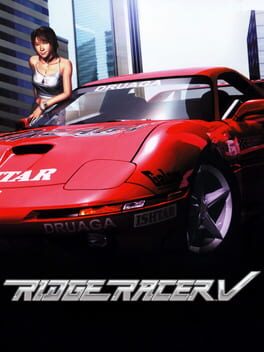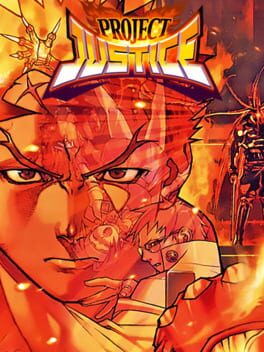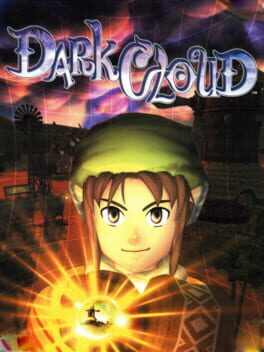Josh15
719 reviews liked by Josh15
It's good to be honest.
It makes it different enough from SRB2K for not leave it obsolete.
It becomes obsolete on its own.
EN: Out of jokes, I am very mixed with this game.
To start, the tutorial is extremely long, it took me ONE FUCKING HOUR, it doesn't explain its mechanics well and too much text, it's a racing game, the first thing you want to do is get there and play, if there is going to be a tutorial it should be short and concise, but they don't even do that.
You go to the main menu, imagine you are in a group with friends who want to play online, you go to the mode and you find out that you MUST MAKE A GRANDPRIX PARTICIPATION TO PLAY ONLINE, they even block you from USING MODS, it's a decision that totally destroys what this genre does so well, get in and play, luckily they can improve all this in future updates.
My big problem is with the Gameplay, while it has very cool implementations like for example now getting Items becomes a roulette in which you can activate the skill you need at the moment, there are other very ridiculous decisions like adding quick drops, spending rings and tricks with springs, also the modification of physics and speeds, to the point that all this makes me think that it doesn't feel like I'm going full speed and I pray to stay on the road, if you run out of coins you will punish yourself enormously.
All these changes totally take away my desire to play, not even friends will want to play this game because of the many limitations this game gives you, its release leaves me quite bitter, but I am also optimistic for the future of this game.
Es bastante simpático.
Lo hace lo suficientemente diferente de SRB2K para no dejarlo obsoleto.
Se vuelve obsoleto por sí mismo.
ES: Fuera de bromas, estoy muy mixto con este juego.
Para iniciar, el tutorial es extremadamente largo, me duró UNA PUTA HORA, no explica bien sus mecánicas y demasiado texto, es un juego de carreras, lo primero que quieres hacer es llegar y jugar, si habrá un tutorial debe ser breve y consciso, pero ni eso logran.
Vas al menú principal, imagina estás en un grupo con amigos que quieren jugar online, vas al modo y te enteras que DEBES HACER UNA PARTIDA GRANDPRIX PARA JUGAR ONLINE, incluso te bloquean el USO DE MODS, es una decisión que destruye totalmente lo que este género hace tan bien, entrar y jugar, por suerte se puede mejorar todo esto en futuras actualizaciones.
Mi gran problema es con el Gameplay, si bien tiene implementaciones muy geniales como por ejemplo que ahora la obtención de Items se vuelve una ruleta en la cual puedes activar la habilidad que necesites en el momento, hay otras decisiones muy ridículas como añadir caídas rápidas, gasto de anillos y trucos con muelles, también la modificación de físicas y velocidades, al punto de que todo esto me hace pensar que no parece que esté yendo a máxima velocidad y rezo para mantenerme en la carretera, si te quedas sin monedas te castigarás enormemente.
Todos estos cambios alejan totalmente mis ganas de jugar, ni siquiera amigos querrán jugar este juego por las tantas limitaciones que te da este juego, su lanzamiento me deja bastante amargo, pero también estoy optimista por el futuro de este juego.
It makes it different enough from SRB2K for not leave it obsolete.
It becomes obsolete on its own.
EN: Out of jokes, I am very mixed with this game.
To start, the tutorial is extremely long, it took me ONE FUCKING HOUR, it doesn't explain its mechanics well and too much text, it's a racing game, the first thing you want to do is get there and play, if there is going to be a tutorial it should be short and concise, but they don't even do that.
You go to the main menu, imagine you are in a group with friends who want to play online, you go to the mode and you find out that you MUST MAKE A GRANDPRIX PARTICIPATION TO PLAY ONLINE, they even block you from USING MODS, it's a decision that totally destroys what this genre does so well, get in and play, luckily they can improve all this in future updates.
My big problem is with the Gameplay, while it has very cool implementations like for example now getting Items becomes a roulette in which you can activate the skill you need at the moment, there are other very ridiculous decisions like adding quick drops, spending rings and tricks with springs, also the modification of physics and speeds, to the point that all this makes me think that it doesn't feel like I'm going full speed and I pray to stay on the road, if you run out of coins you will punish yourself enormously.
All these changes totally take away my desire to play, not even friends will want to play this game because of the many limitations this game gives you, its release leaves me quite bitter, but I am also optimistic for the future of this game.
Es bastante simpático.
Lo hace lo suficientemente diferente de SRB2K para no dejarlo obsoleto.
Se vuelve obsoleto por sí mismo.
ES: Fuera de bromas, estoy muy mixto con este juego.
Para iniciar, el tutorial es extremadamente largo, me duró UNA PUTA HORA, no explica bien sus mecánicas y demasiado texto, es un juego de carreras, lo primero que quieres hacer es llegar y jugar, si habrá un tutorial debe ser breve y consciso, pero ni eso logran.
Vas al menú principal, imagina estás en un grupo con amigos que quieren jugar online, vas al modo y te enteras que DEBES HACER UNA PARTIDA GRANDPRIX PARA JUGAR ONLINE, incluso te bloquean el USO DE MODS, es una decisión que destruye totalmente lo que este género hace tan bien, entrar y jugar, por suerte se puede mejorar todo esto en futuras actualizaciones.
Mi gran problema es con el Gameplay, si bien tiene implementaciones muy geniales como por ejemplo que ahora la obtención de Items se vuelve una ruleta en la cual puedes activar la habilidad que necesites en el momento, hay otras decisiones muy ridículas como añadir caídas rápidas, gasto de anillos y trucos con muelles, también la modificación de físicas y velocidades, al punto de que todo esto me hace pensar que no parece que esté yendo a máxima velocidad y rezo para mantenerme en la carretera, si te quedas sin monedas te castigarás enormemente.
Todos estos cambios alejan totalmente mis ganas de jugar, ni siquiera amigos querrán jugar este juego por las tantas limitaciones que te da este juego, su lanzamiento me deja bastante amargo, pero también estoy optimista por el futuro de este juego.
Hyper Light Drifter
2016
Years have passed since I’ve played my beloved Hyper Light Drifter. I wanna say I played this in 2016(?), a shrimple 14 year old girl who only knew it from a 20 second twitter clip that was rlly emotionally evocative. Didn’t know one thing about the gameplay, went fuck it we ball mode and played it. It was, back then, one of my favorite games ever, and over the years I began to doubt that. It’s no-dialogue story gimmick, good music, and catchy title were the only bits that stuck with me as years passed. I thought I’d been duped a bit emotionally by some easily marketable ideas, and that I wss some kinda ‘cool games poser’.
Do you know how happy I am to report that I was right in this case? I’ve been right a lot in this way recently- replaying Soul Hackers and Bastion lately showed me that I actually underrated or didn’t fully grasp how good some of these games were, and I’m really glad I hissed away my initial urge to avoid childhood joys out of embarrassment.
Here’s some history I think is an interesting little primer: I like three of the Zelda games. Played most of em. Like 15 of them probably? I genuinely hate all but three: Zelda 1, Minish Cap, and Four Swords (I’m a bit of a Game Boy Bitch it seems. Never had one growing up but I am!). Zelda 1 is like- one of the first games I recall playing. My dad’s parents sold their childhood SNES and it’s games but I did grow up using their old NES for some reason. They amassed a pretty good selection I think given the fact some weird poor kid from the middle of nowhere was making the buying decisions: Zelda 1 and 2, Blades of Steel, NES Golf, Final Fantasy 1, and Mario 2. I played the hell outta Zelda 2 the most I think. It was kinda infuriating! I wanted all the answers!
Later on in life, I really took a liking to Zelda 1. It’s simple, everything’s pretty to the point, and there ain’t many games like Just Zelda 1 made today. Like- you’ll have kinda similar things, right? But then there’ll be an extended segment that makes you go “….Oh. That’s Link To The Past, right.” and it kills the enjoyment I have, genuinely! Just think of LttP- ugh! What a- what a fucking specific and weird and unapproachable dull thing. Link to the Past.
Anyway- what I like in Z1 is it’s specificity and simultaneous lack thereof. Every time I get an item in Zelda 1, I know what it does immediately. If it’s long enough since I’ve upgraded a piece of equipment, I can feel a hankering for the eventual upgrade of it. If I ain’t seen a secret area in a bit, my mind tunes to look for them effectively.
Most importantly, though: the plot (however simple it is in Zelda 1) is a transfer of information. You don’t make a lot of active plot progress until the end of the game in Zelda 1. You have the NES game’s manual to tell you what is happening, and you have whatever story clues are contained in the individual moments. What’s happening here, though, is a structured pattern of plot-by-learning. Not exposition, really. Just other people having info, and the story forming as you’re given more context for how it all concludes. Nothing is ‘happening’, though. However, this is story a type of story I find universally compelling. Especially once you get into the nitty-gritty- who else knows that thing you just learned, and why didn’t they tell you before?
Zelda 1’s story isn’t that interesting, really. Like let’s be honest- I’m not gonna call it the masterclass in simple plot communication. But like…..I certainly remember it more fondly today than anything that happened in Ocarina looking back. Hyper Light Drifter takes the addicting and lovely parts of this structure to the extreme: information is conveyed through pure emotional connection. You see images, hear some tone-setting music, your heart does the rest of the work. You really do not need to hear words, you just need to understand at the base level what is most important in each individual scene.
Heck, it’s even got the hyperfocus on an underground dungeon world!
There’s a tendency to call this game cryptic that I really despise, though. It’s not. There’s this stupid thing where you can get the story of the game by obtaining these tablets that translate everything about the backstory and uh…you don’t need that. I’m the Hyper Light Hypewoman and I’m probably never doing it, honestly! Each part of this game is perfectly communicated. If you think there’s something missing it’s likely not that you misunderstood anything- it’s just That Simple, and your brain expects more.
What happens, as I see it- is incredibly simple. Our main character, THEE Hyper Light Drifter, awakens to find a disease they’ve had for a while worsening. They start blacking out for portions, seeing these visions of a beast killing them and sparking the end of humanity. Usually, at the end of these visions, a scary ass dog appears leading them in different directions. The Drifter trusts this dog for no good reason. Really, they shouldn’t based on the facts: these visions of the future they start getting feature the dog adjacent to themselves drowning within another creature’s maw, and civilization as a whole getting blown the fuck up.
We get context for the creature that will kill us and it’s supercomputer papaw throughout 4 episodic chapters. Universally, people are hurt by it after thinking they could approach it like any other situation. Not even the computer in some cases: just other species of lil peoples that suddenly get possessed by murderous ideology. These people have NO reason to trust others. Neither do you, kinda!
Another driftin’ sick fellow, though, dies shortly after risking life and limb to protect you. This reaffirms the Drifter’s inherent trust in others, and once the time comes, their trust is rewarded. They defeat the beast and escape alive and healthier after the scary ass dogthing leads them to safety. They’ve protected the world, but disabled their method of escape (the supercomputer that controlled the elevator system between the lower world and the surface). They will die, but alone with the dog and no one else now. Not from their painful sickness. It’s not perfect, but it could be considered better. And not to mention, life-affirming: it’s so difficult to trust others. I’ve been burned basically every time I’ve done it. It’s nice to consider this impulse still might not be worthless.
Hyper Light Drifter, overall, is a game about constant trust. It is a game full of secrets, where the artist's touches prompt you and reward you for trusting them. There's a universal Secret Symbol: you see it, you know something's there. Sometimes it's just a room with a key for ya to take. Isn't that nice? A lot of the times you land in a three-screen dungeon leading up to, you guessed it, a key. Sometimes it feels like you're being tricked. Could be a trick, even, honestly. But you always get a lil treat for your efforts. A reward for handing over your trust. There's a lot more about the game's design I think supports this philosophy but like- number one, I'm just gonna be repeating my words for like six more paragraphs if I do that, and number two: you don't want that at all. Like duh. That would blow. Not sure if what's about to follow is better, but like you'd hate it either way so I'll take those odds.
Okay, we already toyed with doing some Tim Rogers self-obsessed storytime bullshit during the Zelda Talk, but like- you either closed this review cuz of that or you’re itching for more. Ya want more? Oh, I got more.
In 2019 I was diagnosed with paranoid schizophrenia. I have never told my family this, and I didnt tell a single person in my life until 2023. It's like- a fairly well known fact now. In my everyday life, things have gotten harder to manage vis-a-vis that, but y’know, back then it was simple: my inner monologue was hateful towards myself, and I would sometimes say things out loud and immediately recognize I was having a vivid memory-hallucination so strong I forgot where I was. Between then and now, we’ve got one major difference: trust issues. It’s about to get a little heavy so y’know. Trigger warnings and what not. There’s like- usually two or three things people talk about when they say that, so I hope you know to save this tab for later if that hurts right now.
In the years between then and now, I’ve lost every person I trusted for the most part. Most of my childhood friends killed themselves or were killed by their families. One of these particular suicides, which happened in 2017, I walked in on after it had happened. Which was a lot to work with as a teen. There were things I promised them I’d do I never got to, and vice versa. Obviously I dont like- blame any of them. Thats a really unfair thing to do, I think. But it really hurt my ability to trust others. Still, though, I had to actively try to trust people when I could regardless of how much it was hurting me to do so. I've always been a hopeful little soul, and people looked to me constantly for inspiration or to uplift their mood. When you're met with all that, you can't let that crack at all. You have to be this perfect emblem for others, even though it sucks. For a long ass time, I did trust like- one particular person a lot (genuinely!) and that isn’t true any more. You’ll remember when I threw out 2023 earlier? They helped me a lot starting in like- 2022 to help me get past a lot of this shit. We talked nearly every day for like a year. They were kind in the moment when I tried to talk about the symptoms of my schizophrenic disorder which was like- pretty new to me! Hadn't had much of a chance to talk about it before, but now here's someone who knows all the terminology that I'm having to use right now!
So, early 2024 rolls around and I have a crazy schizophrenia hallucination episode. I live alone with no in-person support network at this point. I try to kill myself the same way my old best friend did back in 2017, just in a public park at night instead of a house. At some point shortly after I tell them this, they just never talk to me again. I shouldn’t say never- I still text them sometimes, they might respond with a simple sentence once every month. If I try and ask how they’re doing or if we can talk soon, it’s left on read. If I say “Hey I watched that movie you mentioned.” there’s a one in five chance they say “Cool, that one’s good.”
Needless to say- much of my day now is spent grappling with trust issues. Like most of the day. It’s my fulltime job type shit. caused not exclusively by this new issue. But it's certainly not helping, right? I do not trust any one which, y’know, sucks! That used to be like- easy to do! However stupid it might be, though, if someone asks me to trust them with something I do as asked. Always.
I am a quitter in a lot of ways, and a real self-aware idiot, but let one thing be known: I try the hell outta it when I do that shit. I have crazy trust issues that make me think that every kind act done to me is part of some larger ploy. That they only intend to use and betray my trust later. Every time I’ve ever had the “oh this person’s playing nice they Actually Hate You” alarm ring, I’ve been correct.
But like- it feels stupid to let the Brain Disease Currently Putting Me Down win, right? That’s my Real Fucking Life Vow to the world right there: I will never stop trusting people no matter how hard this shit gets. That’s what the got damn game is about. #HyperLightMentality #AntiHaterLifestyle
I guess the conclusion I want you to draw from all this info is: talk to people in your life, even if it hurts or sucks to do. Ya gotta trust people, I think, maybe. And uh- Hyper Light Drifter is a really great piece on how the power of trust extends beyond logical reason sometimes. Not in a like- sometimes you just gotta have faith bullshit happy ending way. More like- you'll have these self-aware moments where you recognize your trust in something is illogical or really unfair towards yourself, but you live with it regardless. Shouts out Heart Machine, heard they're making a weird spiritual sequel roguelike to this now? Kinda weird, right? I'm super down for whatever that is.
Do you know how happy I am to report that I was right in this case? I’ve been right a lot in this way recently- replaying Soul Hackers and Bastion lately showed me that I actually underrated or didn’t fully grasp how good some of these games were, and I’m really glad I hissed away my initial urge to avoid childhood joys out of embarrassment.
Here’s some history I think is an interesting little primer: I like three of the Zelda games. Played most of em. Like 15 of them probably? I genuinely hate all but three: Zelda 1, Minish Cap, and Four Swords (I’m a bit of a Game Boy Bitch it seems. Never had one growing up but I am!). Zelda 1 is like- one of the first games I recall playing. My dad’s parents sold their childhood SNES and it’s games but I did grow up using their old NES for some reason. They amassed a pretty good selection I think given the fact some weird poor kid from the middle of nowhere was making the buying decisions: Zelda 1 and 2, Blades of Steel, NES Golf, Final Fantasy 1, and Mario 2. I played the hell outta Zelda 2 the most I think. It was kinda infuriating! I wanted all the answers!
Later on in life, I really took a liking to Zelda 1. It’s simple, everything’s pretty to the point, and there ain’t many games like Just Zelda 1 made today. Like- you’ll have kinda similar things, right? But then there’ll be an extended segment that makes you go “….Oh. That’s Link To The Past, right.” and it kills the enjoyment I have, genuinely! Just think of LttP- ugh! What a- what a fucking specific and weird and unapproachable dull thing. Link to the Past.
Anyway- what I like in Z1 is it’s specificity and simultaneous lack thereof. Every time I get an item in Zelda 1, I know what it does immediately. If it’s long enough since I’ve upgraded a piece of equipment, I can feel a hankering for the eventual upgrade of it. If I ain’t seen a secret area in a bit, my mind tunes to look for them effectively.
Most importantly, though: the plot (however simple it is in Zelda 1) is a transfer of information. You don’t make a lot of active plot progress until the end of the game in Zelda 1. You have the NES game’s manual to tell you what is happening, and you have whatever story clues are contained in the individual moments. What’s happening here, though, is a structured pattern of plot-by-learning. Not exposition, really. Just other people having info, and the story forming as you’re given more context for how it all concludes. Nothing is ‘happening’, though. However, this is story a type of story I find universally compelling. Especially once you get into the nitty-gritty- who else knows that thing you just learned, and why didn’t they tell you before?
Zelda 1’s story isn’t that interesting, really. Like let’s be honest- I’m not gonna call it the masterclass in simple plot communication. But like…..I certainly remember it more fondly today than anything that happened in Ocarina looking back. Hyper Light Drifter takes the addicting and lovely parts of this structure to the extreme: information is conveyed through pure emotional connection. You see images, hear some tone-setting music, your heart does the rest of the work. You really do not need to hear words, you just need to understand at the base level what is most important in each individual scene.
Heck, it’s even got the hyperfocus on an underground dungeon world!
There’s a tendency to call this game cryptic that I really despise, though. It’s not. There’s this stupid thing where you can get the story of the game by obtaining these tablets that translate everything about the backstory and uh…you don’t need that. I’m the Hyper Light Hypewoman and I’m probably never doing it, honestly! Each part of this game is perfectly communicated. If you think there’s something missing it’s likely not that you misunderstood anything- it’s just That Simple, and your brain expects more.
What happens, as I see it- is incredibly simple. Our main character, THEE Hyper Light Drifter, awakens to find a disease they’ve had for a while worsening. They start blacking out for portions, seeing these visions of a beast killing them and sparking the end of humanity. Usually, at the end of these visions, a scary ass dog appears leading them in different directions. The Drifter trusts this dog for no good reason. Really, they shouldn’t based on the facts: these visions of the future they start getting feature the dog adjacent to themselves drowning within another creature’s maw, and civilization as a whole getting blown the fuck up.
We get context for the creature that will kill us and it’s supercomputer papaw throughout 4 episodic chapters. Universally, people are hurt by it after thinking they could approach it like any other situation. Not even the computer in some cases: just other species of lil peoples that suddenly get possessed by murderous ideology. These people have NO reason to trust others. Neither do you, kinda!
Another driftin’ sick fellow, though, dies shortly after risking life and limb to protect you. This reaffirms the Drifter’s inherent trust in others, and once the time comes, their trust is rewarded. They defeat the beast and escape alive and healthier after the scary ass dogthing leads them to safety. They’ve protected the world, but disabled their method of escape (the supercomputer that controlled the elevator system between the lower world and the surface). They will die, but alone with the dog and no one else now. Not from their painful sickness. It’s not perfect, but it could be considered better. And not to mention, life-affirming: it’s so difficult to trust others. I’ve been burned basically every time I’ve done it. It’s nice to consider this impulse still might not be worthless.
Hyper Light Drifter, overall, is a game about constant trust. It is a game full of secrets, where the artist's touches prompt you and reward you for trusting them. There's a universal Secret Symbol: you see it, you know something's there. Sometimes it's just a room with a key for ya to take. Isn't that nice? A lot of the times you land in a three-screen dungeon leading up to, you guessed it, a key. Sometimes it feels like you're being tricked. Could be a trick, even, honestly. But you always get a lil treat for your efforts. A reward for handing over your trust. There's a lot more about the game's design I think supports this philosophy but like- number one, I'm just gonna be repeating my words for like six more paragraphs if I do that, and number two: you don't want that at all. Like duh. That would blow. Not sure if what's about to follow is better, but like you'd hate it either way so I'll take those odds.
Okay, we already toyed with doing some Tim Rogers self-obsessed storytime bullshit during the Zelda Talk, but like- you either closed this review cuz of that or you’re itching for more. Ya want more? Oh, I got more.
In 2019 I was diagnosed with paranoid schizophrenia. I have never told my family this, and I didnt tell a single person in my life until 2023. It's like- a fairly well known fact now. In my everyday life, things have gotten harder to manage vis-a-vis that, but y’know, back then it was simple: my inner monologue was hateful towards myself, and I would sometimes say things out loud and immediately recognize I was having a vivid memory-hallucination so strong I forgot where I was. Between then and now, we’ve got one major difference: trust issues. It’s about to get a little heavy so y’know. Trigger warnings and what not. There’s like- usually two or three things people talk about when they say that, so I hope you know to save this tab for later if that hurts right now.
In the years between then and now, I’ve lost every person I trusted for the most part. Most of my childhood friends killed themselves or were killed by their families. One of these particular suicides, which happened in 2017, I walked in on after it had happened. Which was a lot to work with as a teen. There were things I promised them I’d do I never got to, and vice versa. Obviously I dont like- blame any of them. Thats a really unfair thing to do, I think. But it really hurt my ability to trust others. Still, though, I had to actively try to trust people when I could regardless of how much it was hurting me to do so. I've always been a hopeful little soul, and people looked to me constantly for inspiration or to uplift their mood. When you're met with all that, you can't let that crack at all. You have to be this perfect emblem for others, even though it sucks. For a long ass time, I did trust like- one particular person a lot (genuinely!) and that isn’t true any more. You’ll remember when I threw out 2023 earlier? They helped me a lot starting in like- 2022 to help me get past a lot of this shit. We talked nearly every day for like a year. They were kind in the moment when I tried to talk about the symptoms of my schizophrenic disorder which was like- pretty new to me! Hadn't had much of a chance to talk about it before, but now here's someone who knows all the terminology that I'm having to use right now!
So, early 2024 rolls around and I have a crazy schizophrenia hallucination episode. I live alone with no in-person support network at this point. I try to kill myself the same way my old best friend did back in 2017, just in a public park at night instead of a house. At some point shortly after I tell them this, they just never talk to me again. I shouldn’t say never- I still text them sometimes, they might respond with a simple sentence once every month. If I try and ask how they’re doing or if we can talk soon, it’s left on read. If I say “Hey I watched that movie you mentioned.” there’s a one in five chance they say “Cool, that one’s good.”
Needless to say- much of my day now is spent grappling with trust issues. Like most of the day. It’s my fulltime job type shit. caused not exclusively by this new issue. But it's certainly not helping, right? I do not trust any one which, y’know, sucks! That used to be like- easy to do! However stupid it might be, though, if someone asks me to trust them with something I do as asked. Always.
I am a quitter in a lot of ways, and a real self-aware idiot, but let one thing be known: I try the hell outta it when I do that shit. I have crazy trust issues that make me think that every kind act done to me is part of some larger ploy. That they only intend to use and betray my trust later. Every time I’ve ever had the “oh this person’s playing nice they Actually Hate You” alarm ring, I’ve been correct.
But like- it feels stupid to let the Brain Disease Currently Putting Me Down win, right? That’s my Real Fucking Life Vow to the world right there: I will never stop trusting people no matter how hard this shit gets. That’s what the got damn game is about. #HyperLightMentality #AntiHaterLifestyle
I guess the conclusion I want you to draw from all this info is: talk to people in your life, even if it hurts or sucks to do. Ya gotta trust people, I think, maybe. And uh- Hyper Light Drifter is a really great piece on how the power of trust extends beyond logical reason sometimes. Not in a like- sometimes you just gotta have faith bullshit happy ending way. More like- you'll have these self-aware moments where you recognize your trust in something is illogical or really unfair towards yourself, but you live with it regardless. Shouts out Heart Machine, heard they're making a weird spiritual sequel roguelike to this now? Kinda weird, right? I'm super down for whatever that is.
Yume Nikki
2004
que rayos fue eso?
yume nikki es el ejemplo perfecto de juegos que te ofrecen una experiencia única, sentimientos únicos y que te transporta a su mundo. juegos que suelo jugar de madrugada luego de venir de trabajar, con la luz apaga más que la de una lámpara de noche que da luz naranja mientras fumo o consumo sustancias. las interpretaciones que le podía dar mientras jugaba, su atmósfera y ost opresivo, pero a la vez reconfortante que me daba un sentimiento de nostalgia y familiaridad e incluso identificado...
este sentimiento solo lo he experimentado con muy pocos juegos y el cual solo me lo ha dado obras muy de nicho y japonesas que salieron en los 90s o 2000s, una época que para los que me conocen, significa demasiado para mí.
yume nikki es el ejemplo perfecto de juegos que te ofrecen una experiencia única, sentimientos únicos y que te transporta a su mundo. juegos que suelo jugar de madrugada luego de venir de trabajar, con la luz apaga más que la de una lámpara de noche que da luz naranja mientras fumo o consumo sustancias. las interpretaciones que le podía dar mientras jugaba, su atmósfera y ost opresivo, pero a la vez reconfortante que me daba un sentimiento de nostalgia y familiaridad e incluso identificado...
este sentimiento solo lo he experimentado con muy pocos juegos y el cual solo me lo ha dado obras muy de nicho y japonesas que salieron en los 90s o 2000s, una época que para los que me conocen, significa demasiado para mí.
The Simpsons Game
2007
EN: It's a very difficult work to recommend, it won't be everyone's cup of tea.
There is not much to mention that has already been said, but considering that it offers a relaxed vibe in which we can explore its artistically beautiful world, the time limit mechanic breaks this idea, it becomes tiresome at the beginning, you must constantly be aware of your Stamina and have enough time to get to your bed to recover it completely, at least when you level up you extend this time to the point of being able to go days without having to go to sleep and you unlock options to teleport to different locations as you progress. Personally I find it contradictory. The gameplay is the weakest part, it has a lot of puzzles, being very few intuitive, to the point that doing 100% is complex without using a guide.
But despite the big problems in the design it has, it is a unique experience that is worth exploring, thanks to its beautiful world with a very careful artistic aspect in which you feel part of the world, knowing each person, solving their problems, it is so "immersive" that there is no soundtrack as such in each area, Despite its flaws, you can see the passion behind its developers and it manages to transmit what they wanted, it didn't age very well, but its ideas have transcended with time.
You are not a protagonist, but an observer in this small Lovely World.
ES: Es una obra muy difícil de recomendar, no será del agrado de todo el mundo.
No hay mucho que mencionar que ya se ha hablado, pero teniendo en cuenta que nos ofrece una vibra relajada en el que podamos explorar su mundo artísticamente precioso, la mecánica de tiempo límite rompe esta idea, llega a ser pesado al inicio, debes estar constantemente atento a tu Stamina y tener el tiempo suficiente para llegar a tu cama para recuperarlo por completo, al menos al subir de nivel vas extendiendo este tiempo al punto de poder estar días sin tener que ir a dormir y desbloqueas opciones para tele-transportarte a distintas localizaciones al progresar. En lo personal lo encuentro contradictorio. El Gameplay es la parte más débil, posee una gran cantidad de puzzles rebuscados, siendo muy pocos intuitivos, al punto que hacer el 100% sea complejo sin usar guía.
Pero a pesar de los grandes problemas en el diseño que poseé, es una experiencia única que vale la pena explorar, gracias a su precioso mundo con un aspecto artístico muy cuidado en el que te sientes parte del mundo, conociendo a cada persona, resolviendo sus problemas, es tan "inmersivo" que no existe una banda sonora como tal en cada área, sino que vas consiguiendo discos de música en el que podrás elegir tu Soundtrack, detalles como estos salvan en gran parte a este juego, A pesar de sus defectos, se nota la pasión detrás de sus desarrolladores y logra transmitir lo que quisieron, no envejeció muy bien, pero sus ideas han trascendido con el tiempo.
No eres un protagonista, sino un observador en este pequeño mundo encantador.
There is not much to mention that has already been said, but considering that it offers a relaxed vibe in which we can explore its artistically beautiful world, the time limit mechanic breaks this idea, it becomes tiresome at the beginning, you must constantly be aware of your Stamina and have enough time to get to your bed to recover it completely, at least when you level up you extend this time to the point of being able to go days without having to go to sleep and you unlock options to teleport to different locations as you progress. Personally I find it contradictory. The gameplay is the weakest part, it has a lot of puzzles, being very few intuitive, to the point that doing 100% is complex without using a guide.
But despite the big problems in the design it has, it is a unique experience that is worth exploring, thanks to its beautiful world with a very careful artistic aspect in which you feel part of the world, knowing each person, solving their problems, it is so "immersive" that there is no soundtrack as such in each area, Despite its flaws, you can see the passion behind its developers and it manages to transmit what they wanted, it didn't age very well, but its ideas have transcended with time.
You are not a protagonist, but an observer in this small Lovely World.
ES: Es una obra muy difícil de recomendar, no será del agrado de todo el mundo.
No hay mucho que mencionar que ya se ha hablado, pero teniendo en cuenta que nos ofrece una vibra relajada en el que podamos explorar su mundo artísticamente precioso, la mecánica de tiempo límite rompe esta idea, llega a ser pesado al inicio, debes estar constantemente atento a tu Stamina y tener el tiempo suficiente para llegar a tu cama para recuperarlo por completo, al menos al subir de nivel vas extendiendo este tiempo al punto de poder estar días sin tener que ir a dormir y desbloqueas opciones para tele-transportarte a distintas localizaciones al progresar. En lo personal lo encuentro contradictorio. El Gameplay es la parte más débil, posee una gran cantidad de puzzles rebuscados, siendo muy pocos intuitivos, al punto que hacer el 100% sea complejo sin usar guía.
Pero a pesar de los grandes problemas en el diseño que poseé, es una experiencia única que vale la pena explorar, gracias a su precioso mundo con un aspecto artístico muy cuidado en el que te sientes parte del mundo, conociendo a cada persona, resolviendo sus problemas, es tan "inmersivo" que no existe una banda sonora como tal en cada área, sino que vas consiguiendo discos de música en el que podrás elegir tu Soundtrack, detalles como estos salvan en gran parte a este juego, A pesar de sus defectos, se nota la pasión detrás de sus desarrolladores y logra transmitir lo que quisieron, no envejeció muy bien, pero sus ideas han trascendido con el tiempo.
No eres un protagonista, sino un observador en este pequeño mundo encantador.
American Arcadia
2023
Al final de un juego que tiene plataformas de mentira, sigilo de mentira, puzzles de mentira, una trama distópica haciendo críticas de mentira sobre nada, se revela lo obvio. El juego no tiene ni una pizca de esperanza de que las cosas puedan ir a mejor o de que los seres humanos se comporten como tal, y en los créditos se asegura de mostrar que todo intento de su (pobre y falsa) idea de revolución es devorado por el mercado.
Esto se debe a que es un juego devorado por el mercado, por la tendencia, por la mentira, por hacer porque sí, por ser rentable, porque no cree que los humanos tengan nada que hacer por gusto, porque cree que cualquiera se vende o como poco se acaba engatusando por el mal. En esta secuencia de créditos con tono burlón y desesperanzador, el punto de miseria más alto es uno inesperado y accidental. Entre los mensajes de agradecimiento de los desarrolladores, por lo general nada fuera de lo normal, uno de ellos dedica unas palabras muy sentidas a su madre fallecida recientemente. Después de tantas horas de falsedad choca ver un acto tan escondido y tan humano de la nada, que tarda poco en desaparecer de pantalla mientras una versión ensalzada de ironía de la canción recurrente principal sigue sonando, mientras las imágenes de fondo y la escena post créditos se suceden perpetuando que el ser humano no importa y que no tiene capacidad de empatía ni de amor.
Esto se debe a que es un juego devorado por el mercado, por la tendencia, por la mentira, por hacer porque sí, por ser rentable, porque no cree que los humanos tengan nada que hacer por gusto, porque cree que cualquiera se vende o como poco se acaba engatusando por el mal. En esta secuencia de créditos con tono burlón y desesperanzador, el punto de miseria más alto es uno inesperado y accidental. Entre los mensajes de agradecimiento de los desarrolladores, por lo general nada fuera de lo normal, uno de ellos dedica unas palabras muy sentidas a su madre fallecida recientemente. Después de tantas horas de falsedad choca ver un acto tan escondido y tan humano de la nada, que tarda poco en desaparecer de pantalla mientras una versión ensalzada de ironía de la canción recurrente principal sigue sonando, mientras las imágenes de fondo y la escena post créditos se suceden perpetuando que el ser humano no importa y que no tiene capacidad de empatía ni de amor.
Outlaws
1997
Far less great than I thought. A simple recollection of set pieces from a handful of western films someone really likes with a bunch of cutscenes in between to make it look like there’s something going on. I mean, someone definitely tried, but it has the conception of a theme park ride. You got: the shootout in a town (with a saloon shootout and a bank robbery for some reason), shootout in a mine, shootout in a fortress and a shootout in a big mansion. All of these levels stitched together with cutscenes that tell a really generic western revenge story. The kind of story you’d make up in your head when you were 11 after seeing a Clint Eastwood flick that you thought would go hard but due to how barebones of a plot it is, falls flat and is ultimately forgettable and uninteresting.
Other than that it’s a pretty average game, but not much to write home about. The normal difficulty - which I figured out is the one called “bad”, since this game had the great idea to call easy, normal and hard: “good”, “bad” and “ugly” (hah! did you get it? it’s a reference to that movie!) - is specially infuriating since enemies can kill you in literally three or four shots while health packs don’t give back a lot of health, and enemies look all the same while having different behaviours from one another: some have single revolvers, others have dual revolvers, others have shotguns, rifles, etc. etc. all the while looking exactly the same. And the shotgun guys can blast you so hard you go flying backwards. You can call Doom stupid, in that unlike Outlaws it had no plot, no story, no nothing, but it knew how to make enemies distinct enough so you’d know what every enemy does just by hearing their sounds or looking at them. Here, all the enemies look the same, make the same sounds (WHEREAREYOUMARSHALL???) and other than the gun they’re using, they’re basically indistinguishable.
To all this add a convoluted, confusing and maze-like level design with all the inheritance from Doom that don’t seem to fit in the world they’re trying to make (seriously, keys? buttons? switches? levers? I don’t imagine a cowboy running around a mine in search for random switch #9 that activates/opens a random door at the other end of the mine you already forgot about) and you got the recipe for a game that is a failure at everything it tries. A design that not only doesn’t innovate, but isn’t well thought out for the kind of experience they were going for while failing on stuff previously released FPSs already got right.
Other than that it’s a pretty average game, but not much to write home about. The normal difficulty - which I figured out is the one called “bad”, since this game had the great idea to call easy, normal and hard: “good”, “bad” and “ugly” (hah! did you get it? it’s a reference to that movie!) - is specially infuriating since enemies can kill you in literally three or four shots while health packs don’t give back a lot of health, and enemies look all the same while having different behaviours from one another: some have single revolvers, others have dual revolvers, others have shotguns, rifles, etc. etc. all the while looking exactly the same. And the shotgun guys can blast you so hard you go flying backwards. You can call Doom stupid, in that unlike Outlaws it had no plot, no story, no nothing, but it knew how to make enemies distinct enough so you’d know what every enemy does just by hearing their sounds or looking at them. Here, all the enemies look the same, make the same sounds (WHEREAREYOUMARSHALL???) and other than the gun they’re using, they’re basically indistinguishable.
To all this add a convoluted, confusing and maze-like level design with all the inheritance from Doom that don’t seem to fit in the world they’re trying to make (seriously, keys? buttons? switches? levers? I don’t imagine a cowboy running around a mine in search for random switch #9 that activates/opens a random door at the other end of the mine you already forgot about) and you got the recipe for a game that is a failure at everything it tries. A design that not only doesn’t innovate, but isn’t well thought out for the kind of experience they were going for while failing on stuff previously released FPSs already got right.
Adventure
1979
The first great triumph of purely videogame adventure is also one of the first great triumphs of abstraction. The power of Adventure goes beyond the evocative, which is no menial thing, but embraces a wholly abstract language to build a world far more robust and plausible than any other that actively attempts to imitate reality.
It is curious for Colossal Cave Adventure to be one of the main sources of inspiration. It isn’t unexpected that it was taken as a source, as there must not have been many successful examples at the time in the search of adventure, but in how the paths diverged, almost reactionary. Adventure gets rid of words altogether to commit to a total physical world. Consequently, contrary to what abandoning immediate realism may imply, the world of Adventure becomes much more intuitive and believable. There is no longer the conflict of having to puzzle out what kind of commands a word processor is able to understand or not in order to move forward, there is instead the discovery of a system that, while allowing itself to be much simpler, is also much more transparent.
You can grab objects and drop them, birds can also carry (and steal) objects, magnets attract objects contained in the same screen, bridges allow you to cross walls (or whatever they are)... All these rules are not broken at any time and lead to a world that, as Tim Schafer says in the Atari 50 Collection, seems alive, that is able to exist even if the player is not present. Thus, birds can carry away a dragon, a key, a magnet attracting a key, or the player can peek sections of the world while traveling defeated in the belly of a dragon. This contributes in two areas: one of wit from being able to use the available elements in our favor to avoid or tackle obstacles, and another of unpredictability, chaos and life, because given the rules the dislocations of all the elements throughout the map during the game are more than certain. There is always a factor that requires improvisation while continuing the discovery.
It’s difficult to explain how well Adventure applies multiple abstractions to its advantage since many of them have been irremediably absorbed by everything that would come after. As Terry Cavanagh understood in Mr. Platformer, paying homage to similar early titles such as Atari 2600’s Pitfall or Montezuma’s Revenge, these first videogame steps that began to understand abstraction also began to use it as a liberating language. Where entering through a door into a fortress was teleporting into a labyrinth, moving past the edge of the screen was discovering a new piece of the world and doing so repeatedly on the same side discovered a spatially impossible loop.
It's a process of genuine discovery because it doesn’t attempt to clumsily replicate reality, but rather to discover new ways of navigating, interacting and understanding a world. And in the face of all these new, impossible and abstract forms remains a strong, direct and unmistakable sensation: Adventure.
It is curious for Colossal Cave Adventure to be one of the main sources of inspiration. It isn’t unexpected that it was taken as a source, as there must not have been many successful examples at the time in the search of adventure, but in how the paths diverged, almost reactionary. Adventure gets rid of words altogether to commit to a total physical world. Consequently, contrary to what abandoning immediate realism may imply, the world of Adventure becomes much more intuitive and believable. There is no longer the conflict of having to puzzle out what kind of commands a word processor is able to understand or not in order to move forward, there is instead the discovery of a system that, while allowing itself to be much simpler, is also much more transparent.
You can grab objects and drop them, birds can also carry (and steal) objects, magnets attract objects contained in the same screen, bridges allow you to cross walls (or whatever they are)... All these rules are not broken at any time and lead to a world that, as Tim Schafer says in the Atari 50 Collection, seems alive, that is able to exist even if the player is not present. Thus, birds can carry away a dragon, a key, a magnet attracting a key, or the player can peek sections of the world while traveling defeated in the belly of a dragon. This contributes in two areas: one of wit from being able to use the available elements in our favor to avoid or tackle obstacles, and another of unpredictability, chaos and life, because given the rules the dislocations of all the elements throughout the map during the game are more than certain. There is always a factor that requires improvisation while continuing the discovery.
It’s difficult to explain how well Adventure applies multiple abstractions to its advantage since many of them have been irremediably absorbed by everything that would come after. As Terry Cavanagh understood in Mr. Platformer, paying homage to similar early titles such as Atari 2600’s Pitfall or Montezuma’s Revenge, these first videogame steps that began to understand abstraction also began to use it as a liberating language. Where entering through a door into a fortress was teleporting into a labyrinth, moving past the edge of the screen was discovering a new piece of the world and doing so repeatedly on the same side discovered a spatially impossible loop.
It's a process of genuine discovery because it doesn’t attempt to clumsily replicate reality, but rather to discover new ways of navigating, interacting and understanding a world. And in the face of all these new, impossible and abstract forms remains a strong, direct and unmistakable sensation: Adventure.
Kanon
2000
Ok, esta review debió de haber salido hace más de 1 mes, pero por diferentes motivos siempre lo posponía o se me iba la luz (Agrego aquí algo y es que vrga, justo se me fue la luz escribiendo esto, pero fui precavido y guarde los cambios cuando vi que el ventilador empezó a ir lento... Jajajajjaa las cosas de vivir en latam xD), pero bueno, hoy, aprovechando que estoy skipeando texto en Sakura No Uta y eso puede durar fácilmente media hora porque el cabron de SCA-Ji no puso una puta opción de saltar directamente a las decisiones aprovecharé mientras para hacer esta review de una maldita vez.
Estrictamente hablando, Kanon no es la primera obra de "Key", pero si aceptamos que si fue la primera obra de ellos, entonces puedo decir que no fue un mal inicio a pesar de que tiene muchos fallos en cuanto a lo que es el argumento. Digo, al final la es un Nakige y cumple con su cometido de transmitirte diferentes emociones, sus personajes son muy buenos y su apartado artístico y sonoro es una delicia para los que amamos la weeb media de los 90s y 2000s, pero en cuanto al desarrollo de la historia tengo sentimientos encontrados debido a que esta obra fue escrita por 2 personas diferentes y se nota cuando (sin entrar en spoilers), ves que algunas rutas se van por un lado más "mágico" y otras por un lado más realista y mira, todas las rutas fueron entretenidas (bueno, quitando lo de Mai...), pero al final se sentían con un final demasiado abrupto y apresurado, como si estuviesen incompletas y eso es lo que jode la mayoría de rutas. Tenían arto potencial para que al final resuelvan el conflicto de un día para otro sin darle un mayor desarrollo...
Tal vez porque es una VN "corta" (me tomo 26 horas terminar todo)? No, es una excusa su duración, puesto que otras obras tienen esa misma cantidad de horas y logran darle un buen desarrollo a sus rutas. Aun así no digo que sean malas, solo que se sienten incompletas. Aunque eso, la ruta de Ayu es hermosa y no peca tanto de este problema.
Es complicado si recomendarla o no, ya que no es mala, pero comenzando con que si no estás muy metido en meterle mano a VNs para hacerlas funcionar y parchearlas puede que te resulte tedioso ponerle el parche, pero enfocandome en la obra como tal, no se man... Solo la recomendaría si eres fan de Key o si te gustan las obras clasicas de más de 2 décadas, pero sino, entonces (sin ser mala obra repito) recomiendo que te vayas mejor por otros títulos de Key que es 100% seguro de que disfrutaras. En mi caso leí Kanon debido a que como casi todos aquí, la primera VN de Key que leímos fue Canon y en mi caso amo la weeb media de décadas pasada y quería empezar a leer lsa obras de Key en el orden de salida para ver como fue evolucionando una de las desarrolladoras y empresas que más impacto tuvo en este medio.
Estrictamente hablando, Kanon no es la primera obra de "Key", pero si aceptamos que si fue la primera obra de ellos, entonces puedo decir que no fue un mal inicio a pesar de que tiene muchos fallos en cuanto a lo que es el argumento. Digo, al final la es un Nakige y cumple con su cometido de transmitirte diferentes emociones, sus personajes son muy buenos y su apartado artístico y sonoro es una delicia para los que amamos la weeb media de los 90s y 2000s, pero en cuanto al desarrollo de la historia tengo sentimientos encontrados debido a que esta obra fue escrita por 2 personas diferentes y se nota cuando (sin entrar en spoilers), ves que algunas rutas se van por un lado más "mágico" y otras por un lado más realista y mira, todas las rutas fueron entretenidas (bueno, quitando lo de Mai...), pero al final se sentían con un final demasiado abrupto y apresurado, como si estuviesen incompletas y eso es lo que jode la mayoría de rutas. Tenían arto potencial para que al final resuelvan el conflicto de un día para otro sin darle un mayor desarrollo...
Tal vez porque es una VN "corta" (me tomo 26 horas terminar todo)? No, es una excusa su duración, puesto que otras obras tienen esa misma cantidad de horas y logran darle un buen desarrollo a sus rutas. Aun así no digo que sean malas, solo que se sienten incompletas. Aunque eso, la ruta de Ayu es hermosa y no peca tanto de este problema.
Es complicado si recomendarla o no, ya que no es mala, pero comenzando con que si no estás muy metido en meterle mano a VNs para hacerlas funcionar y parchearlas puede que te resulte tedioso ponerle el parche, pero enfocandome en la obra como tal, no se man... Solo la recomendaría si eres fan de Key o si te gustan las obras clasicas de más de 2 décadas, pero sino, entonces (sin ser mala obra repito) recomiendo que te vayas mejor por otros títulos de Key que es 100% seguro de que disfrutaras. En mi caso leí Kanon debido a que como casi todos aquí, la primera VN de Key que leímos fue Canon y en mi caso amo la weeb media de décadas pasada y quería empezar a leer lsa obras de Key en el orden de salida para ver como fue evolucionando una de las desarrolladoras y empresas que más impacto tuvo en este medio.
460 lists liked by Josh15
by Ira |
20 Games
by Phantasm |
9 Games
by Ira |
9 Games
by trailerwaif |
30 Games
by poyfuh |
25 Games
by FallenGrace |
29 Games
by Ardwyw_mp3 |
46 Games
